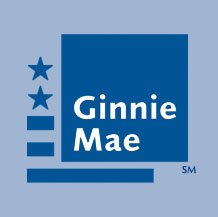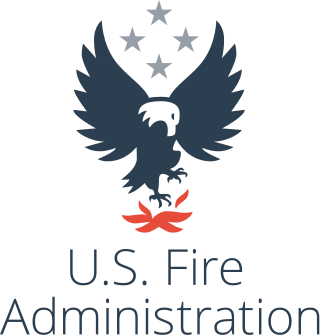
The Great Society was a set of domestic programs in the United States launched by President Lyndon B. Johnson in 1964 and 1965. The term was first referenced during a 1964 speech by Johnson at Ohio University, then later formally presented at the University of Michigan, and came to represent his domestic agenda. The main goal was the total elimination of poverty and racial injustice.

The Federal Housing Administration (FHA), also known as the Office of Housing within the Department of Housing and Urban Development (HUD), is a United States government agency founded by President Franklin Delano Roosevelt, established in part by the National Housing Act of 1934. Its primary function is to provide insurance for mortgages originated by private lenders for various types of properties, including single-family homes, multifamily rental properties, hospitals, and residential care facilities. FHA mortgage insurance serves to safeguard these private lenders from financial losses. In the event that a property owner defaults on their mortgage, FHA steps in to compensate the lender for the outstanding principal balance.

The United States Department of Housing and Urban Development (HUD) is one of the executive departments of the U.S. federal government. It administers federal housing and urban development laws. It is headed by the secretary of housing and urban development, who reports directly to the president of the United States and is a member of the president's Cabinet.

The U.S. Government Accountability Office (GAO) is an independent, nonpartisan government agency within the legislative branch that provides auditing, evaluative, and investigative services for the United States Congress. It is the supreme audit institution of the federal government of the United States. It identifies its core "mission values" as: accountability, integrity, and reliability. It is also known as the "congressional watchdog". The agency is headed by the Comptroller General of the United States. The comptroller general is appointed by the president with the advice and consent of the Senate. When a vacancy occurs in the office of the comptroller general, Congress establishes a commission to recommend individuals to the president. The commission consists of the following:

The Government National Mortgage Association (GNMA), or Ginnie Mae, is a government-owned corporation of the United States Federal Government within the Department of Housing and Urban Development (HUD). It was founded in 1968 and works to expand affordable housing by guaranteeing housing loans (mortgages) thereby lowering financing costs such as interest rates for those loans. It does that through guaranteeing to investors the on-time payment of mortgage-backed securities (MBS) even if homeowners default on the underlying mortgages and the homes are foreclosed upon.
The Community Development Block Grant (CDBG), one of the longest-running programs of the U.S. Department of Housing and Urban Development, funds local community development activities with the stated goal of providing affordable housing, anti-poverty programs, and infrastructure development. CDBG, like other block grant programs, differ from categorical grants, made for specific purposes, in that they are subject to less federal oversight and are largely used at the discretion of the state and local governments and their subgrantees.

An FHA insured loan is a US Federal Housing Administration mortgage insurance backed mortgage loan that is provided by an FHA-approved lender. FHA mortgage insurance protects lenders against losses. They have historically allowed lower-income Americans to borrow money to purchase a home that they would not otherwise be able to afford. Because this type of loan is more geared towards new house owners than real estate investors, FHA loans are different from conventional loans in the sense that the house must be owner-occupant for at least a year. Since loans with lower down-payments usually involve more risk to the lender, the home-buyer must pay a two-part mortgage insurance that involves a one-time bulk payment and a monthly payment to compensate for the increased risk. Frequently, individuals "refinance" or replace their FHA loan to remove their monthly mortgage insurance premium. Removing mortgage insurance premium by paying down the loan has become more difficult with FHA loans as of 2013.

The United States Fire Administration (USFA) is a division of the Federal Emergency Management Agency (FEMA) located in Frederick County, Maryland, near Emmitsburg. Per the official website, "the mission of the U.S. Fire Administration is to support and strengthen fire and emergency medical services (EMS) and stakeholders to prepare for, prevent, mitigate and respond to all hazards".

An industrial loan company (ILC) or industrial bank is a financial institution in the United States that lends money, and may be owned by non-financial institutions. They provide niche financial services nationwide. ILCs offer FDIC-insured deposits and are subject to FDIC and state regulator oversight. All "FDIC-insured entities are subject to Sections 23A and 23B of the Federal Reserve Act, which limits bank transactions with affiliates, including the non-bank parent company." ILCs are permitted to have branches in multiple states. They are regulated and supervised by state charters and insured by the Federal Deposit Insurance Corporation. They are authorized to make consumer and commercial loans and accept federally insured deposits. Banks may not accept demand deposits if the bank has total assets greater than $100 million. ILCs are exempted from the Bank Holding Company Act.

Nehemiah Corporation of America is a non-profit organization based in Sacramento, California specializing in homeownership, affordable housing and community development. It started in 1994 as a small organization, but grew to prominence later in the 1990s after it developed a program that allowed home buyers to make down payments on their purchases using funds that were derived from the home sellers. This program, the Nehemiah Program, became popular and was widely emulated, giving birth to what came to be known as the seller-funded down-payment assistance industry. The industry attracted criticism from U.S. federal agencies and was ultimately shut down in 2008 by a change in federal law.

The Office of Intelligence and Analysis (OIA) is a component of the United States Department of the Treasury responsible for the receipt, analysis, collation, and dissemination of foreign intelligence and counterintelligence information related to the operation and responsibilities of the Treasury Department.

The Federal Home Loan Bank Act, Pub. L.Tooltip Public Law 72–304, 47 Stat. 725, enacted July 22, 1932, is a United States federal law passed under President Herbert Hoover in order to lower the cost of home ownership. It established the Federal Home Loan Bank Board to charter and supervise federal savings and loan institutions. It also created the Federal Home Loan Banks which lend to building and loan associations, cooperative banks, homestead associations, insurance companies, savings banks, community development financial institutions, and insured depository institutions in order to finance home mortgages.
Mortgage discrimination or mortgage lending discrimination is the practice of banks, governments or other lending institutions denying loans to one or more groups of people primarily on the basis of race, ethnic origin, sex or religion.

The Housing Act of 1937, formally the "United States Housing Act of 1937" and sometimes called the Wagner–Steagall Act, provided for subsidies to be paid from the United States federal government to local public housing agencies (LHAs) to improve living conditions for low-income families.

The United States Housing and Economic Recovery Act of 2008 was designed primarily to address the subprime mortgage crisis. It authorized the Federal Housing Administration to guarantee up to $300 billion in new 30-year fixed rate mortgages for subprime borrowers if lenders wrote down principal loan balances to 90 percent of current appraisal value. It was intended to restore confidence in Fannie Mae and Freddie Mac by strengthening regulations and injecting capital into the two large U.S. suppliers of mortgage funding. States are authorized to refinance subprime loans using mortgage revenue bonds. Enactment of the Act led to the government conservatorship of Fannie Mae and Freddie Mac.

The Metric Conversion Act of 1975 is an Act of Congress that was signed into law by U.S. President Gerald Ford on December 23, 1975. It declared the metric system "the preferred system of weights and measures for United States trade and commerce", but permitted the use of United States customary units in all activities. As Ford's statement on the signing of the act emphasizes, all conversion was to be "completely voluntary". The Act also established the United States Metric Board with representatives from scientific, technical, and educational institutions, as well as state and local governments to plan, coordinate, and educate the U.S. people for the Metrication of the United States.

The Indochina Migration and Refugee Assistance Act, passed on May 23, 1975, under President Gerald Ford, was a response to the Fall of Saigon and the end of the Vietnam War. Under this act, approximately 130,000 refugees from South Vietnam, Laos and Cambodia were allowed to enter the United States under a special status, and the act allotted special relocation aid and financial assistance.

The Housing and Urban Development Act of 1968, Pub. L.Tooltip Public Law 90–448, 82 Stat. 476, enacted August 1, 1968, was passed during the Lyndon B. Johnson Administration. The act came on the heels of major riots across cities throughout the U.S. in 1967, the assassination of Civil Rights Leader Martin Luther King Jr. in April 1968, and the publication of the report of the Kerner Commission, which recommended major expansions in public funding and support of urban areas. President Lyndon B. Johnson referred to the legislation as one of the most significant laws ever passed in the U.S., due to its scale and ambition. The act's declared intention was constructing or rehabilitating 26 million housing units, 6 million of these for low- and moderate-income families, over the next 10 years.

Mobile Home Construction and Safety Standards Act of 1974 or National Mobile Home Construction and Safety Standards Act is a United States federal law establishing design and development safety standards for manufactured housing or prefabricated homes. The codified law authorized stipulations whereas any proposed safety standard shall be equitable for a particular type of mobile home with consideration of additional cost liabilities for the future homeownership. The Act of Congress endorsed violative civil penalties and judicial review of Federal mobile home construction and safety standards developed by the United States Department of Housing and Urban Development. The Act mandated the establishment of the National Mobile Home Advisory Council and National Mobile Home Administration.
The Dodd–Frank Wall Street Reform and Consumer Protection Act was created as a response to the financial crisis in 2007. Passed in 2010, the act contains a great number of provisions, taking over 848 pages. It targets the sectors of the financial system that were believed to be responsible for the financial crisis, including banks, mortgage lenders, and credit rating agencies. Ostensibly aimed at reducing the instability that led to the crash, the act has the power to force these institutions to reduce their risk and increase their reserve capital.










